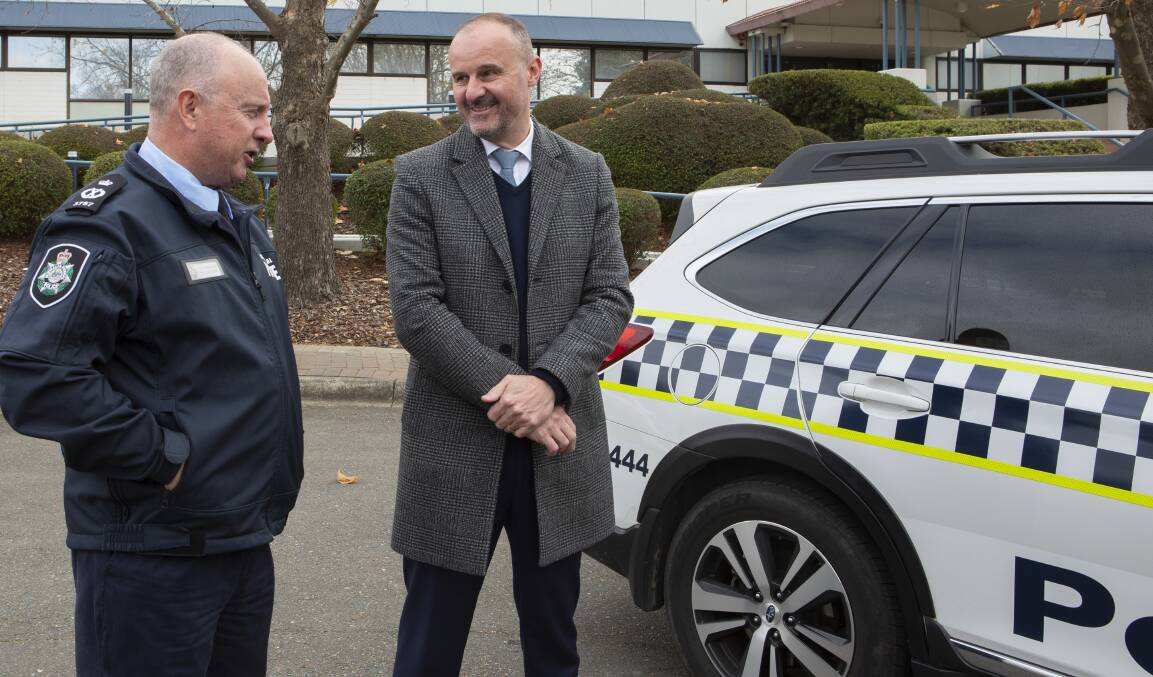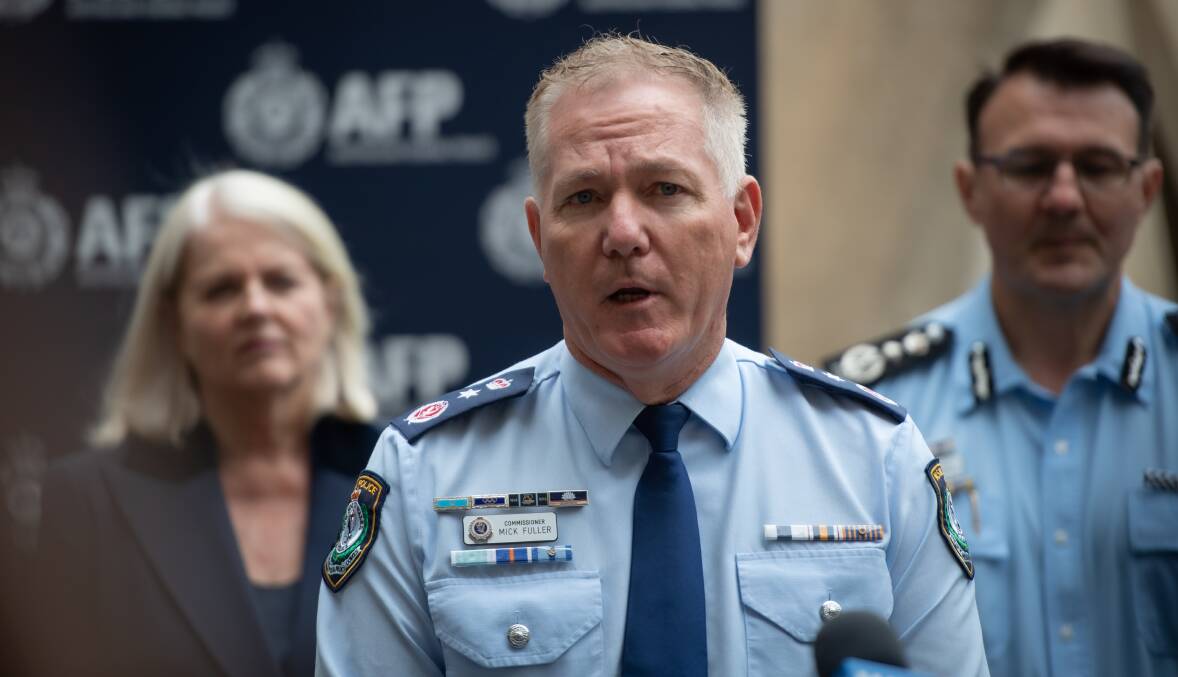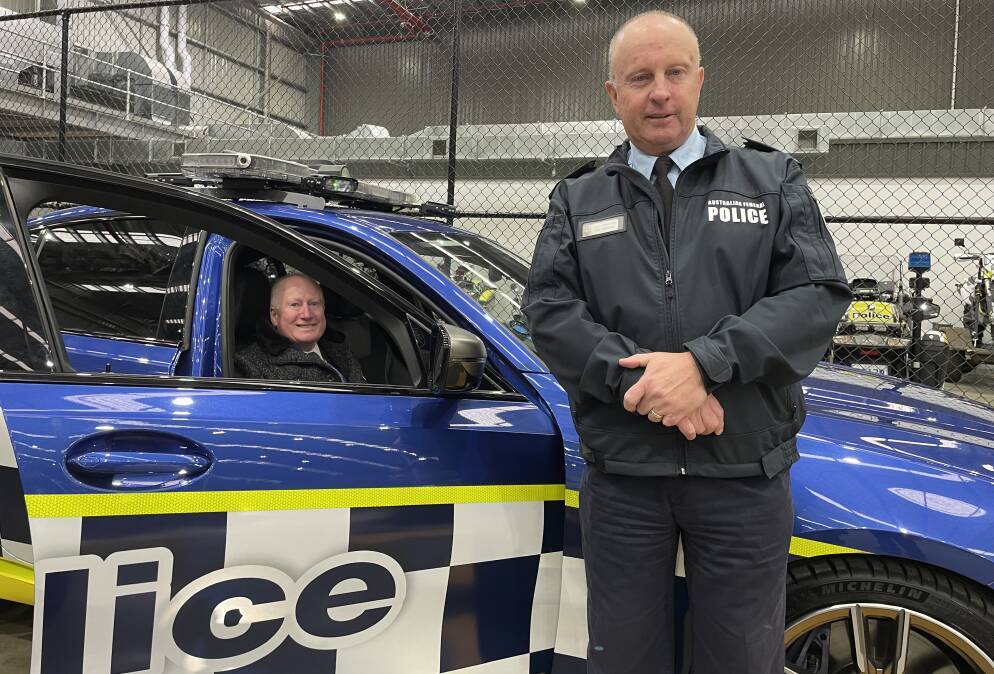
An independent review has suggested reduced traffic offences in the ACT are driving down overall crime rates and helping to mask the upward trajectory of other more serious crime and public safety-related incidents such as sexual assaults.
The same review also urged ACT Policing to reshape its imbedded "reactive" approach to policing, and have the "right capabilities and capacity in place" for the future under its $33.9 million police services model.
The $794,000 ACT Now review by consultants PricewaterhouseCoopers was commissioned by the federal police in September last year, released only to key stakeholders in February, and obtained by The Canberra Times under freedom of information.
It was led by former NSW Police commissioner and PwC partner Mick Fuller.
The Fuller-led review focused specifically on ACT Policing (ACTP), which is a contracted service from the Australian Federal Police to the ACT government at a cost of about $200 million a year.
Since the review has been compiled, the professional reputation of PwC has been horrendously damaged through its leaking of confidential public tax information to the benefit of its corporate clients. This led to the AFP severing all contracts with it as of June 30 this year.

However, the Fuller team's analysis is understood to have been of significant value in supporting ACTP's future strategic direction. The report recommended a "cohesive, reimagined operating model which is more effective in its delivery."
"Get this right, and ACTP's ability to usher in dynamic community policing and improve public safety outcomes will be well-supported," the report says.
"Don't [change], and ACTP runs the risk of embedding a reactive cycle that threatens public safety outcomes a greater balance between general policing, crime prevention and crime disruption."
One motivation for the review was to seek an independent assessment of police numbers, separate from any ACT government directorate input. Insufficient sworn officer numbers for the ACT has been a constant irritant between the two parties.
The robustness of the debate reached a tipping point in February when ACT chief police officer Neil Gaughan, responding to a report on government services which revealed the latest, parlous state of ACT police resources, expressed his concern for how workload demands were resulting in a health impact on his officers.

He described how his workforce was "clearly suffering" under a "demand and supply issue" and there was a need to "do something".
"It has become a much more complex [policing] environment, more suicides, more domestic violence, more mental health [issues]."
The Fuller review concurred on the complexity and the understaffing issues, saying it had "identified evidence which indicates ACTP is operating below optimum capacity".
The ACT government obfuscated and deflected on the issue for months, then in its June budget prudently diverted $107 million over four years to bolster recruitment numbers, effectively funding an extra recruit class of 25 per year.
Chief Minister Andrew Barr described it as the "single biggest boost to police resourcing since self-government".
However, finding enough recruits to fill those courses may be the next challenge, as is the drain of experienced talent through attrition and retirement out of the organisation.
While those who make it all the way through the lengthy AFP vetting process get paid to train, the protracted feed-in time to the course leaves them exposed to better offers.
Quality candidates, preferably from the local region, are getting much harder to find and the competition for them - when rivals like the Queensland Police are offering an up front, in-the-door incentive payment of $20,000 - is getting tougher every year. Anyone studying on campus to join NSW Police gets $3000 per year.
"Some elements of the pre-employment screening criteria for AFP (e.g., single instances of small amounts of illicit drug use or a single previous driving offence) may also prevent otherwise successful candidates from applying," the review said.
"Consideration of the pre-employment criteria ... and more flexible approaches to policing education may support ACTP in presenting a compelling attraction offer for potential new recruits."
The review also flagged the purchase agreement between the ACT government and the federal police "needs to be more adaptable to the changing environment trends".
"Specifically, the current KPIs (key performance indicators) ... do not include any references to external demand drivers (such as population growth or crime trends), and as such, such indicators are not directly used in relation to the funding cycle," it said.
"In the future, a more targeted approach to determining funding will better support an ongoing sustainable service delivery."
We've made it a whole lot easier for you to have your say. Our new comment platform requires only one log-in to access articles and to join the discussion on The Canberra Times website. Find out how to register so you can enjoy civil, friendly and engaging discussions. See our moderation policy here.







